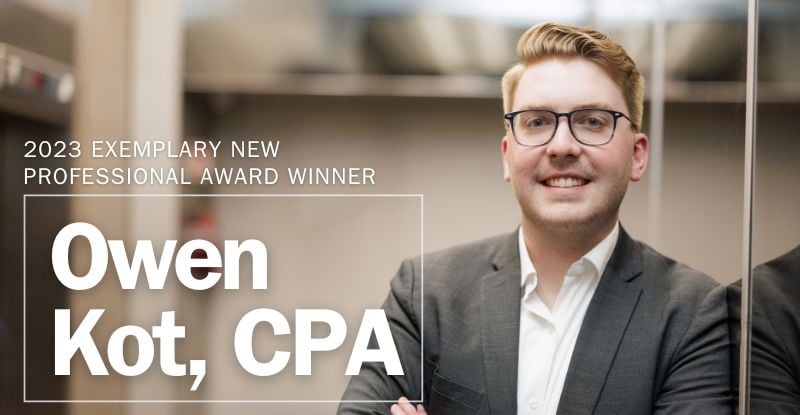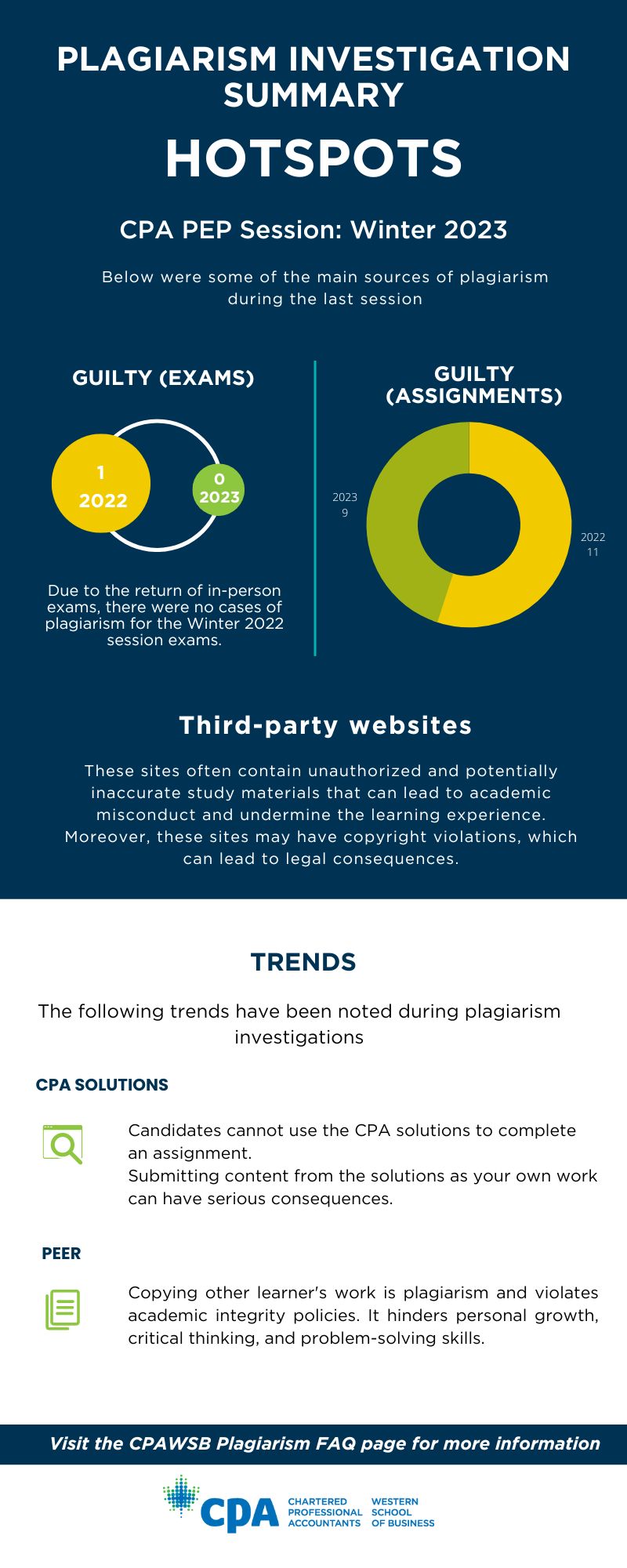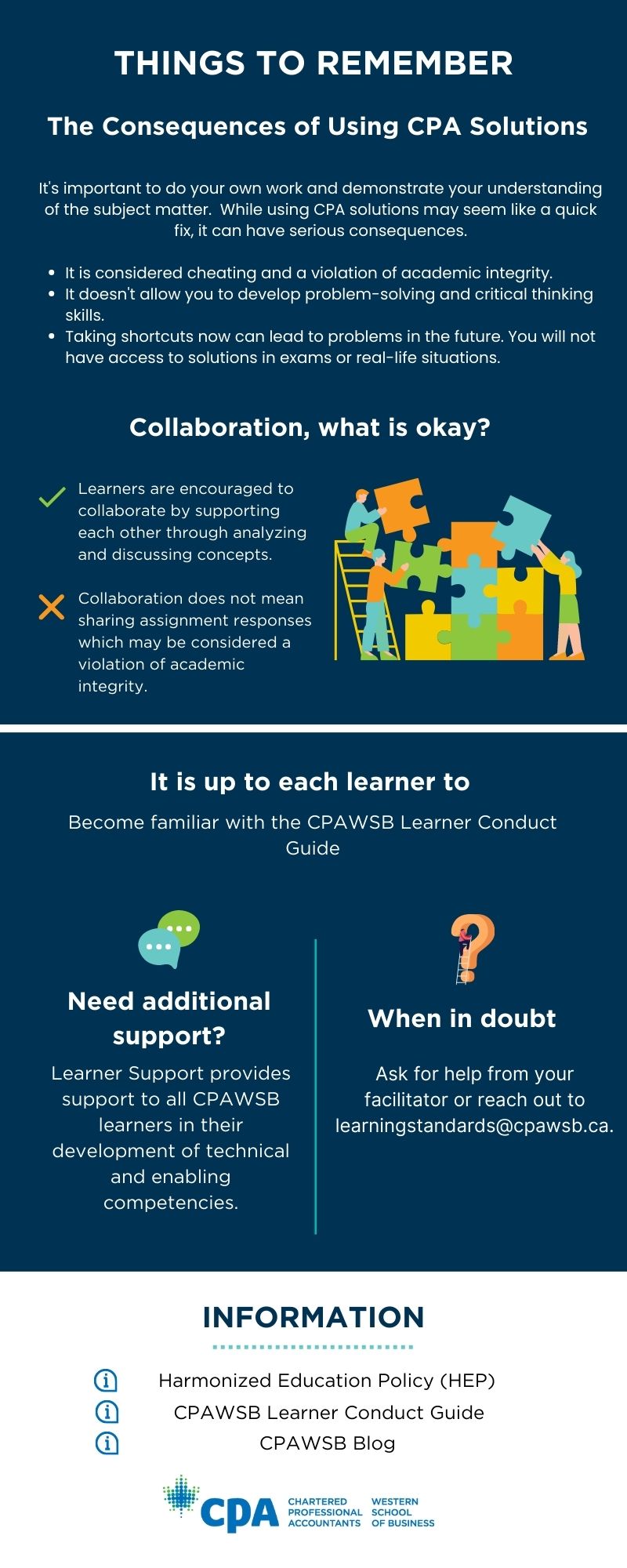An important part of the CPA education component is collaborating with others. Learners are encouraged to collaborate with each other, which is possible without violating the CPA Canada Plagiarism Policy. Learners are encouraged to study with others and discuss concepts, but submitting the same content, sharing assignments, or other behaviours that lead to plagiarism, are not acceptable.
Learners who are unable to find a peer to study with can contact Learner Support. Please visit the Peer Studying page for information.
Learners have access to various resources throughout their CPA education (for example, Learning eBooks). Although these resources are provided by the profession, it is important to remember that they must be cited like any other material.
It is important to note that if CPA solutions are provided after the assignment submission, they should be used for debrief purposes only. The CPA solution should not be used to complete an assignment or shared with anyone else.
Learners are expected to submit original work during their CPA preparatory courses or CPA PEP modules, however sometimes an outside source can help expand on an idea. If a learner uses the ideas or content from another source within an assignment, the content should not exceed a reasonable amount and it must be properly cited. If there is unoriginal content found in an assignment submission that was not cited, this would be a violation of academic integrity (plagiarism).
As future CPAs, all learners are expected to act with integrity and ethically. Engaging in activity such as purchasing and/or selling CPA material (including but not limited to Learning eBook content, CPA solutions, and assignments) is not only a violation of academic integrity but could result in more serious outcomes since these actions involve copyrighted material. Improper use includes uploading CPA material to a third-party website.
Learner Support provides support to all CPAWSB learners and offers various support services, including but not limited to academic advising, tutoring, peer studying etc. For more information, please visit the Learner Support page.


.jpg?ext=.jpg)







.jpg?ext=.jpg)












